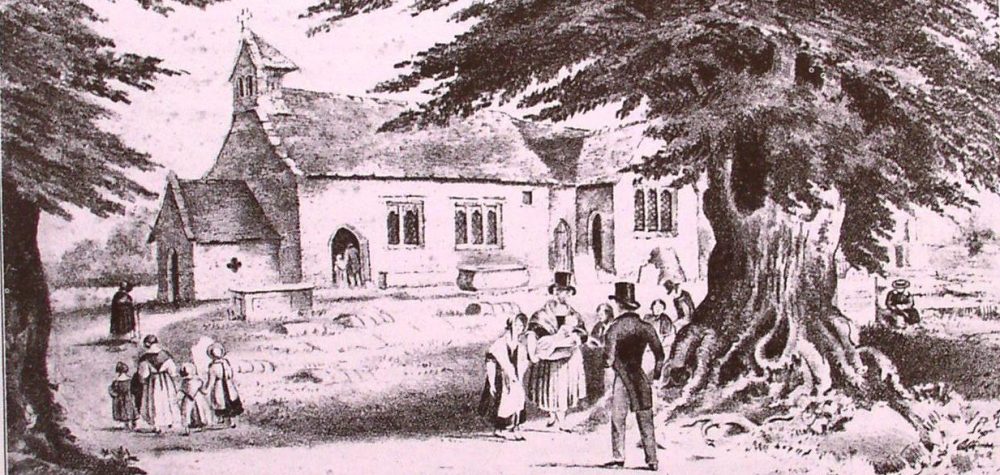27th March 1875 – Goytre
A Concert was held at the above place on Thursday, March 18th for the benefit of the British School. Col. Byrde presided, and the choir of the Baptist Chapel, Glascoed, assisted by a few kind friends, performed the pieces much to their own credit and the high satisfaction of all present. Programme: –
Anthem – Before Jehovah’s awful throne – Choir.
Solo – Comfort ye my people – Mr W. Edmonds.
Anthem – Awake the song of Jubilee – Choir.
Solo – No tears in heaven – Mr T. Brace.
Quartet – Forgive blest shades – Miss H. Morgan, Miss S. Lewis, Mr W. Edmonds, and Mr H. Williams.
Solo – Oh, had I the wings of a dove – Mr S. Evans.
Quartet- As the hart panteth – Misses Watkins, Mr S. Evans, and Mr W. Williams.
Solo – Blessed are the meek – Mr J. Tucker.
Anthem – I will lift up mine eyes – choir.
Solo – The soldier to his mother – Mr Reese.
Trio and chorus – Canaan – Miss H. Morgan, Miss S. Lewis, and Mr W. Williams.
Solo – Home, sweet hone – Mr S. Evans.
Anthem – Oh praise the Lord – Choir.
Song- God bless our sailor prince – Mr T. Brace.
Anthem – Lift up your head – Choir.
Solo – I am lonely since my mother died – Mr W. Edmonds.
Anthem – Now pray we for our country – Choir.
As usual there was an interval of some minutes, and while the singers were recruiting their strength, the respected chairman, with other gentlemen, not liking to waste time, converted the meeting into a grammar class, and enquired into the etymology and translation of two Welsh terms, namely “Cwmbwrwch” and “Dinas.” This enquiry was occasioned by the worthy chairman supposing that the leader of the excellent choir lived at Cwmbwrwch, a circumstance that caused surprise that such an excellent and good conductor could come from such a Nazereth. However one clever scholar undertook to translate the awkward term, informing his class-master, to the amusement of all, that it meant, badger’s dingle.” Next came the word “Dinas,” when another scholar interpreted this as meaning “tasteless,” upon which the Rev J. Tucker assured all that if “diflas” meant “tasteless,”
there was little fear of the singers growing “diflas.” So that with the excellent singing and the humorous talk, a most pleasant evening was spent.
